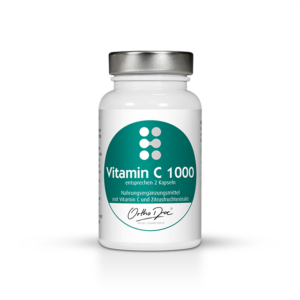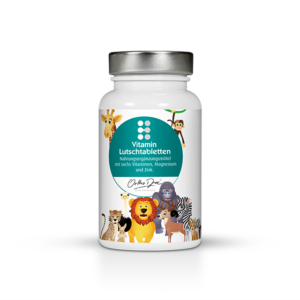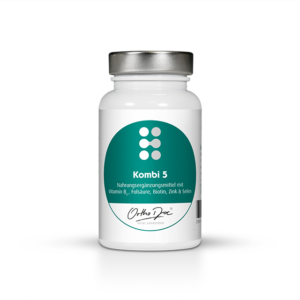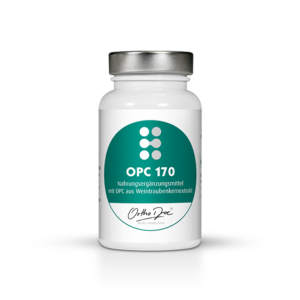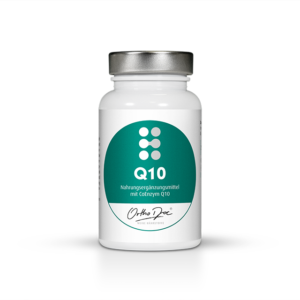NEWSLETTER
Knowledge and education – We do the research for you!
Studies on the topic of “Women and well-being”.
Summarized studies and original literature for you to download free of charge.

Study
A Collagen Supplement Improves Skin Hydration, Elasticity, Roughness, and Density: Results of a Randomized, Placebo-Controlled, Blind Study
Liane Bolke, Gerrit Schlippe, Joachim Gerß and Werner Voss
Abstract: The purpose of this randomized, placebo-controlled, blind study was to investigate the effects of the drinkable dietary supplement ELASTEN® (QUIRIS Healthcare, Gütersloh, Germany) on skin aging and skin health. The drinkable ampoules contain a mixture of 2.5 g collagen peptides, acerola fruit extract, vitamin C, Zinc, biotin and a native vitamin E complex. This controlled interventional study was conducted on 72 healthy women aged 35 years or older. They received either the dietary supplement (n = 36) or a placebo (n = 36) over a twelve-week period. A skin assessment was performed and was based on objective validated methods, including corneometry (skin hydration), cutometry (elasticity), use of silicone skin mock-ups with rapid 3D phase shift optical measurements (PRIMOS) (roughness) and skin sonography (density). The verum group was observed for a further four weeks (without taking the test product) to assess the sustainability of the changes caused by taking the test product. The test product significantly improved skin hydration, elasticity, roughness and density. The differences between the verum group and the placebo group were statistically significant for all test parameters. These positive effects were largely maintained during the follow-up. The measured effects were fully consistent with the subjective assessments of the study participants. The dietary supplement was well tolerated.
Study
Zinc and copper levels in premenstrual syndrome
C J Chouong, E B Dawson
Abstract: The aim of the study was to determine whether changes in peripheral Zinc and copper levels are associated with symptoms of premenstrual syndrome (PMS). For this purpose, blood samples were taken from ten PMS patients and ten control subjects every 2 or 3 days during three menstrual cycles and the serum levels of Zinc and copper were determined. In the control subjects, the zinc levels did not differ significantly between the follicular and luteal phases. In the patients, the levels were significantly lower during the luteal phase than during the follicular phase. Lower zinc levels were found during the luteal phase in PMS patients compared to controls. …
Study
Presenting a New, Non-Hormonally Mediated Cyclic Headache in Woman: End-Menstrual Migraine
Anne H Calhoun, Nicole Grill
Abstract: This retrospective study investigated end-menstrual migraine (EMM), which occurs in women at the end of menstruation. Of 119 women studied, 30 (35.3%) suffered from this form of migraine. Twenty-eight of these 30 patients (93.3%) had ferritin levels below the generally accepted lower limit of 50 ng/mL (mean = 21.9 ng/mL) – half of which were below 18 ng/mL, the established minimum level for women. The authors suspect that EMM is not hormonal but is caused by blood loss during menstruation. Further studies are needed to confirm this association and to evaluate the effect of iron therapy.
Study
Diet and Skin Aging-From the Perspective of Food Nutrition
Changwei Cao, Zhichao Xiao, Yinglong Wu, Changrong Ge
Abstract: The skin is the primary barrier that protects the body from external influences. Skin ageing is a complex biological process divided into chronological ageing and photo-induced skin ageing, which is influenced by internal and external factors. With the rapid progress of medicine in extending life expectancy and the rapid deterioration of environmental conditions, it is urgent to find safe and effective methods to treat skin aging. In terms of nutrition – the main source of energy and nutrients – people have gradually realized its importance for the skin. Therefore, in this review, we discuss skin structure, signs of aging and possible mechanisms, summarize research progress, challenges, possible approaches to nutritional control and the effects of antioxidant-rich diet on skin aging.
Study
Evaluating the effect of Magnesium and Magnesium plus Vitamin B6 Supplement on the severity of premenstrual syndrome
Nahid Fathizadeh, Elham Ebrahimi, Mahboube Valiani, Naser Tavakoli, Manizhe Hojat Yar
Abstract: The aim of the present study is to determine the effect of Magnesium (Mg), the combination of vitamin B6 and Mg, and placebo on the severity of PMS in affected patients. The participants were randomly assigned to two intervention groups and one control group. The study was conducted over a period of four months in ten selected health centers in Isfahan. To confirm the diagnosis of PMS in the patients, they filled out a daily PMS symptom documentation form for two months. After confirming the diagnosis, participants were randomly assigned to one of the three study groups (Mg, Mg plus vitamin B6 and placebo). The medical intervention was carried out over two menstrual cycles and the results of the pre- and post-test were compared.
After the intervention, the average PMS score decreased significantly in all three groups (p < 0.05). The greatest decrease was observed in the Mg plus vitamin B6 group, while it was lowest in the placebo group.
Conclusions: The results showed that Mg plus vitamin B6 had the strongest effect on the mean PMS score, while the placebo had the least effect.
Study
Efficacy of vitamin D3 supplementation on cancer mortality: Systematic review and individual patient data meta-analysis of randomized controlled trials
Sabine Kuznia, Anna Zhu, Taisuke Akutsu et al.
Abstract: To investigate the effect of vitamin D3 supplementation on cancer mortality in the general population and prognosis in cancer patients, a systematic review and meta-analysis of randomized, placebo-controlled trials (RCTs) and individual patient data (IPD) was conducted. A total of 14 RCTs with 104,727 participants (2015 cancer-related deaths) were identified, of which 7 RCTs, including 90% of all study participants (n = 94,068), could be included in the IPD meta-analyses. The main meta-analysis of the 14 RCTs showed a statistically non-significant reduction in cancer mortality of 6% (risk ratio (RR) [95% confidence interval (95% CI)]: 0.94 [0.86-1.02]). Subgroup analyses showed a 12% reduction in cancer mortality in the vitamin D3 group compared to the placebo group in 10 studies with daily dosing (RR [95% CI]: 0.88 [0.78-0.98]), while no reduction in mortality was observed in 4 studies with bolus dosing. …

